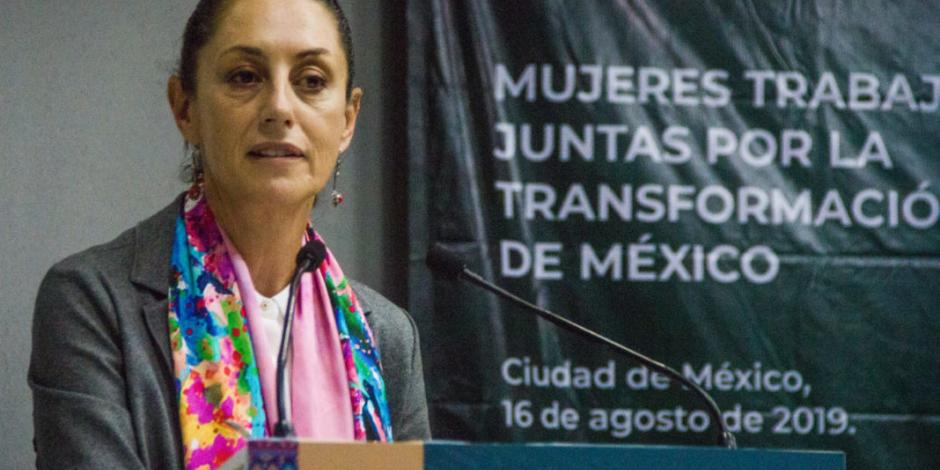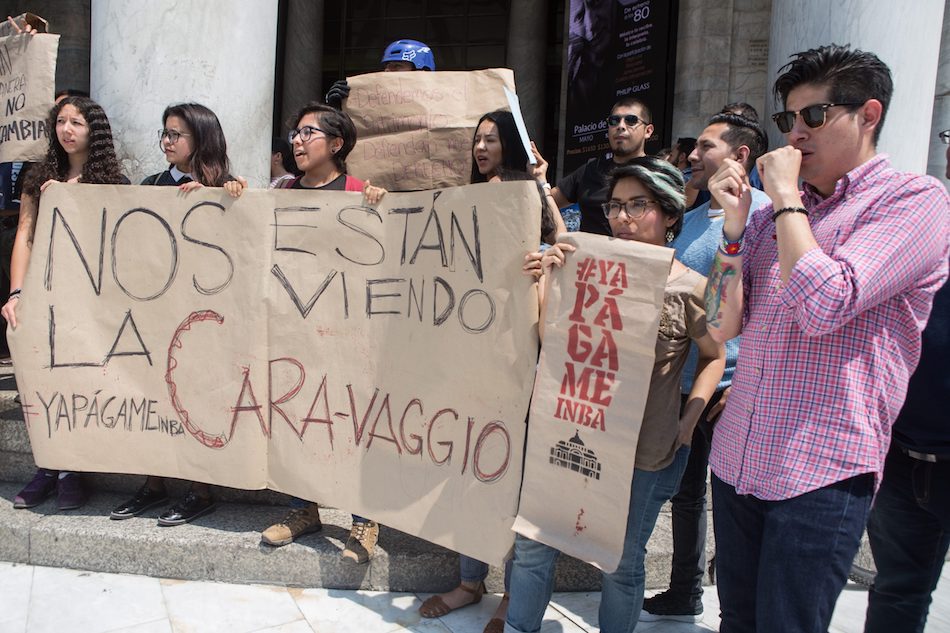
29.11.2020
Based on her experience of unjustified dismissal by the Secretariat of Culture of Mexico City, the writer Zazil Collins wonders about the normalization of labor abuses and the lack of union initiative among art and culture workers for a common defense.

Could it be that when the self-appointed children of communism and exile take up their duels and defend the public, as the greatest good of a nation, my country of helots will heal?
Or when they defend the working class, make their struggle their own, and therefore point out and rectify the historical debts of the State, will my country of helots will heal?
Could it be that when they begin to assert the right to healthcare and the right to appoint every worker as a worker, without the euphemisms “collaborator” or freelancer, my country of helots will heal?
Could it be that when the high officials stop creating and seeing wars in every attempt of dialogue and defense of rights, my country of helots will heal?
Could it be that when these officials are forced to survive with an unemployment insurance of 1500 pesos a month to pay for basic services, including rent and food, my country of helots will heal?
Could it be that when officials stop substituting universal rights with health packages with names like “Fame and Health” and “Start Your Success”, to do personal business, supported by a disregarded state and merchant, my country of helots will heal?
Could it be that when the workers of the State are paid on time, when the State forces every employer to pay on time, my country of helots will heal?
Could it be that when the SAT (public system for tax collection in Mexico) defends the creators, exempt taxes for their activities, against the employers who force us to hand them over, my country of helots will heal?

Could it be that when bureaucracies are transparent and begin to respond to emails and requests, because they assume that the time of others is the time of the public-citizen (and respect for the rights of others), my country of helots will heal?
Could it be that when the workers’ movements stop praising officials—late masters—who have attacked them in the past, my country of helots will heal?
Or when artists/creators begin to understand themselves as workers, as well as the human capital behind them?
Let’s repeat: worker, I am a worker.
Could it be that when we can establish axioms among cultural workers, bureaucrats, artists, unionists and “service providers”, including an ethical press, my country of helots will heal?
Axioms from a language that does not disqualify or belittle those who denounce. Axioms of cooperation.
I will be in solidarity with my colleagues and will not call them arrogant or conflictive just because of the demand that their rights, which are also mine, are respected.
I, a colleague with public visibility, will accompany my other colleagues in denouncing their just demands.
Etc…
Could it be that when we stop thinking about being blacklisted for speaking out, my country of helots will heal?
Could it be that when the media bureaucrats stop blacklisting, harassing and coercing the workers, my country of helots will heal?
Could it be that when we look into oblivion, my country of helots will heal? Oblivion, with O. Oblivion that, as Todorov wrote, generates executioners who arrogate to themselves “the right to control the selection of elements that must be conserved.”
Could it be that when the self-styled left-wingers, by inherited title and not by action, depart from privileges, my country of helots will heal?

Could it be that when officials stop presenting themselves as “Zapatistas, feminists, horizontals, friends” and take on the struggle of the working classes, my country of helots will heal?
Could it be that when sorority means not keeping silent in the face of opprobrium, even ignominy, my country of helots will heal?
Could it be that when sorority is companionship and loyalty, not using others for personal, greedy purposes, my country of helots will heal?
Could it be that when creators and audiences question why they consume media that openly violates labor and expression rights, without conditioning their consumption to reversing or correcting their abuses and omissions, my country of helots will heal?
Could it be that when the organization of a civil society, which demands and watches over public-citizen rights, is encouraged and strengthened, my country will heal because the helots will break their chains and leave their masters alone?
Today, dissidence is assuming civil society.
These are some of the questions that I am thinking about during the anthropause 2020, although they began to become visible in December 2018, due to the administrative failure in labor policies, with the withholding of salaries and the hiring of cultural workers from all over the country, without accountability.[1]
At first, it was argued that this would only be a brief transition, while taking over what was once pure corruption; however, the unpaid bills, and even the absence and delay of contracts, became official where I worked as a music programmer and host: the public radio station in Mexico City, from which I was fired, without justification, recognition, settlement, etc., while I was on vacation in January 2020, as a coercive act for demanding the fulfillment of my rights as a worker long ago, and also of freedom of expression, having been subjected to censorship in the space I was conducting.

Since the entry of the current administration, many arguments were expressed by the headlines: previous corruption, the disappearance of resources,[2] to the archetypal approach of a struggle between good and bad who did not want to pay taxes and caused the lack of money in the City, etc., but always in appreciation of the wearing the workers’ colors, without reforming the structure or repairing the damage. The 2019 protests by workers’ movements and their demands in front of the Fine Arts Museum (March) and National Palace (December), to name just a few, are public knowledge, but the cohesion between them has been complex. At a national level it has had an impact, but at a local level it has been less.
On February 15, 2020, the first cultural parliament of Mexico City took place, where the labor violence exercised by the Ministry of Culture of the city were exposed in a simulation of participatory democracy, because once again the authorities are preserving their debts this 2020, named “Year of the Cultural Workers”, and worse, they intend to exercise control over the media, turning them into propaganda weapons and even proposing to the judiciary in their editorialization tables, etc.[3]
If this is the Year of Cultural Workers, and furthermore, as our President has declared, neoliberalism no longer exists, why do we, cultural workers, agonize over decent contracts in the government sector, with statutory benefits, payment on time and recognition of employment relationships? Why do ex-workers find themselves filing lawsuits after being fired, so that various Ministries can recognize and restore our labor figures? Where is the Ministry of Labor? Why don’t the Ministries of Culture defend their workers? Why do the Ministries of Culture refuse to recognize those of us who generate and execute the ideas and projects they rejoice in government reports? During the First Cultural Parliament of Mexico City, Hebe Rosell took the microphone to sing a long, sore, battered cry on behalf of the artists absent from that venue, the Mexico City Museum, a cry that continues to resonate as a protest against the indifference and exploitation of civil cultural rights.
For more information on INBAL’s ongoing workplace violence see: Alida Piñón, “Artistas llevan 8 meses sin pago de Cultura CDMX”, El Universal, November 27, 2019, Culture Section; available here; and “Protestan trabajadores del INBAL por falta de pagos”, La Jornada, 3 de noviembre de 2020, Sección Cultura; available here.
Erika P. Bucio, “Demigen músicos que cumplir con promesas de retiro”, Reforma, March 3, 2020; available here only with newspaper subscription.
In this regard, a series of pronouncements of the AMEDI (Mexican State News Agency for its acronym in Spanish) can be consulted here in the face of the unconstitutionality represented by the still opaque Law of the Public Broadcasting System of CDMX.
Comments
There are no coments available.